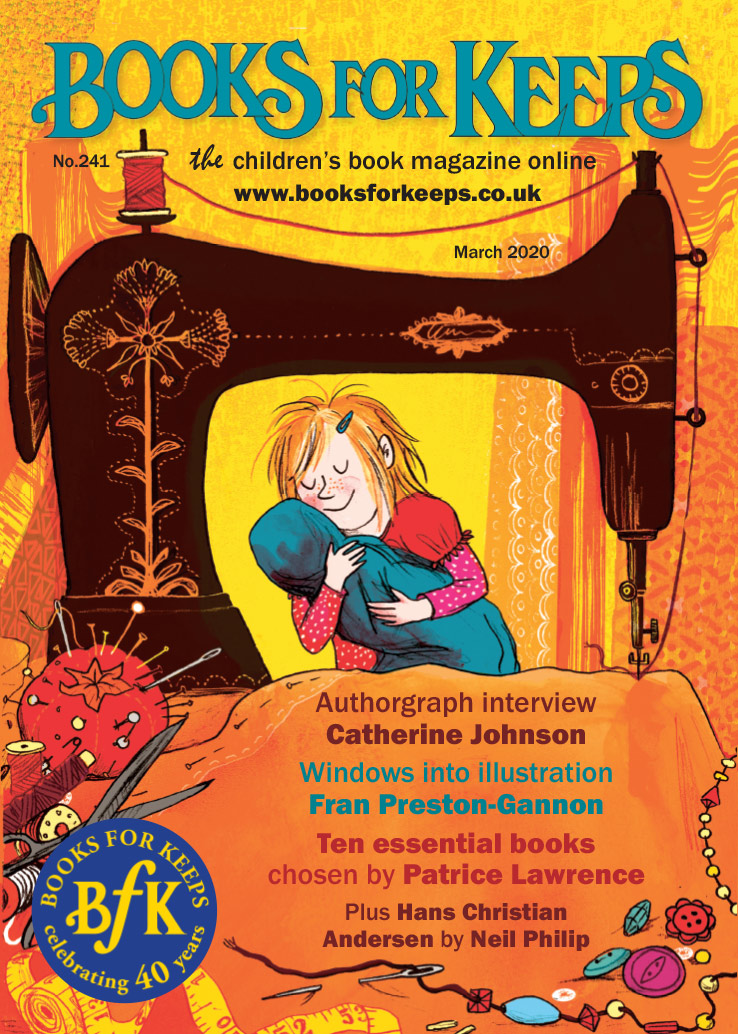
Malory Towers: now on your TV screen
Rebecca Butler reviews the new BBC series.
 There is renewed interest in the Malory Towers novels of Enid Blyton. Readers of Books for Keeps will recall that in September of 2019 I reviewed a stage performance of the books which took place at Bristol Temple Meads railway station. The theatre was packed.
There is renewed interest in the Malory Towers novels of Enid Blyton. Readers of Books for Keeps will recall that in September of 2019 I reviewed a stage performance of the books which took place at Bristol Temple Meads railway station. The theatre was packed.
Now the BBC has premiered a thirteen-part adaptation of Enid Blyton’s six-book series of school novels. In the event the TV series focuses attention on a narrower range than the whole series of six. Attention is devoted to the first book and one dramatic interlude from the second. There are some adults, including scholars of children’s literature, who might look askance on a renewal of interest in the work of Enid Blyton. The criticism of Blyton refers not only to her personal behaviour – she has been accused of neglecting her own children – but also the retrograde social and racial attitudes prevalent in her books. Nevertheless among young readers her works still exercise a powerful appeal.
 The BBC has attempted to allay the fears of Blyton’s critics. Some features of the original books have been modified to take account of modern sensibilities in respect of race, gender and disability. Miss Potts, Malory Towers first form teacher, is played by an actor of colour. So also are two friends of protagonist Darrell Rivers, Alicia Johns and Sally Hope. Gwendolen Mary Lacey, the prototypical stuck up English girl, is played beautifully. The redemption which comes to Gwendolen in the series is absent from this dramatisation – which is all the stronger for its absence.
The BBC has attempted to allay the fears of Blyton’s critics. Some features of the original books have been modified to take account of modern sensibilities in respect of race, gender and disability. Miss Potts, Malory Towers first form teacher, is played by an actor of colour. So also are two friends of protagonist Darrell Rivers, Alicia Johns and Sally Hope. Gwendolen Mary Lacey, the prototypical stuck up English girl, is played beautifully. The redemption which comes to Gwendolen in the series is absent from this dramatisation – which is all the stronger for its absence.
 There are however some developments in the TV adaptation which work less well. In Blyton’s tale Darrell arrives at Malory Towers straight from home. In the TV version she first attends another school, Saint Hilda’s, but leaves that school to move to Malory Towers as a result of an expulsion. In the books Matron is a character aloof and unsympathetic but not repellent. On the TV screen Matron is unrelentingly harsh towards the students and actually rather malicious towards one of the adult characters. Darrell’s aims in life also suffer a sea change. In the books she demonstrates a talent for writing and has the ambition to become an author. In the TV version she is dyslexic. Her aim is to become a doctor, like her father. Although one is bound to welcome the introduction of disability as a theme, in this case it actually gives a misleading impression of the central character in Blyton’s creation. The authors of the TV version have introduced a new character to the story, a ghost named Lady Jane Malory. By the end of the series the reason for her introduction has been made clear. But in the interim genuine admirers of the original work are left wondering why such a radical innovation was required.
There are however some developments in the TV adaptation which work less well. In Blyton’s tale Darrell arrives at Malory Towers straight from home. In the TV version she first attends another school, Saint Hilda’s, but leaves that school to move to Malory Towers as a result of an expulsion. In the books Matron is a character aloof and unsympathetic but not repellent. On the TV screen Matron is unrelentingly harsh towards the students and actually rather malicious towards one of the adult characters. Darrell’s aims in life also suffer a sea change. In the books she demonstrates a talent for writing and has the ambition to become an author. In the TV version she is dyslexic. Her aim is to become a doctor, like her father. Although one is bound to welcome the introduction of disability as a theme, in this case it actually gives a misleading impression of the central character in Blyton’s creation. The authors of the TV version have introduced a new character to the story, a ghost named Lady Jane Malory. By the end of the series the reason for her introduction has been made clear. But in the interim genuine admirers of the original work are left wondering why such a radical innovation was required.
To any purist admirer of Blyton prepared to dislike this adaptation, it is fair to emphasise that the new version does preserve the 1950s diction and aura. Despite the changes listed above, the TV version does maintain a close enough affinity with those remarkable books.
Rebecca Butler writes and lectures on children’s literature.
The full series of Malory Towers is available now on BBC iPlayer. The series has been made for CBBC by King Bert Productions and WildBrain in association with Family Channel. It has been adapted for television by Rachel Flowerday and Sasha Hails
The Malory Towers books are published by Hodder Children’s Books, £6.99 pbk.





